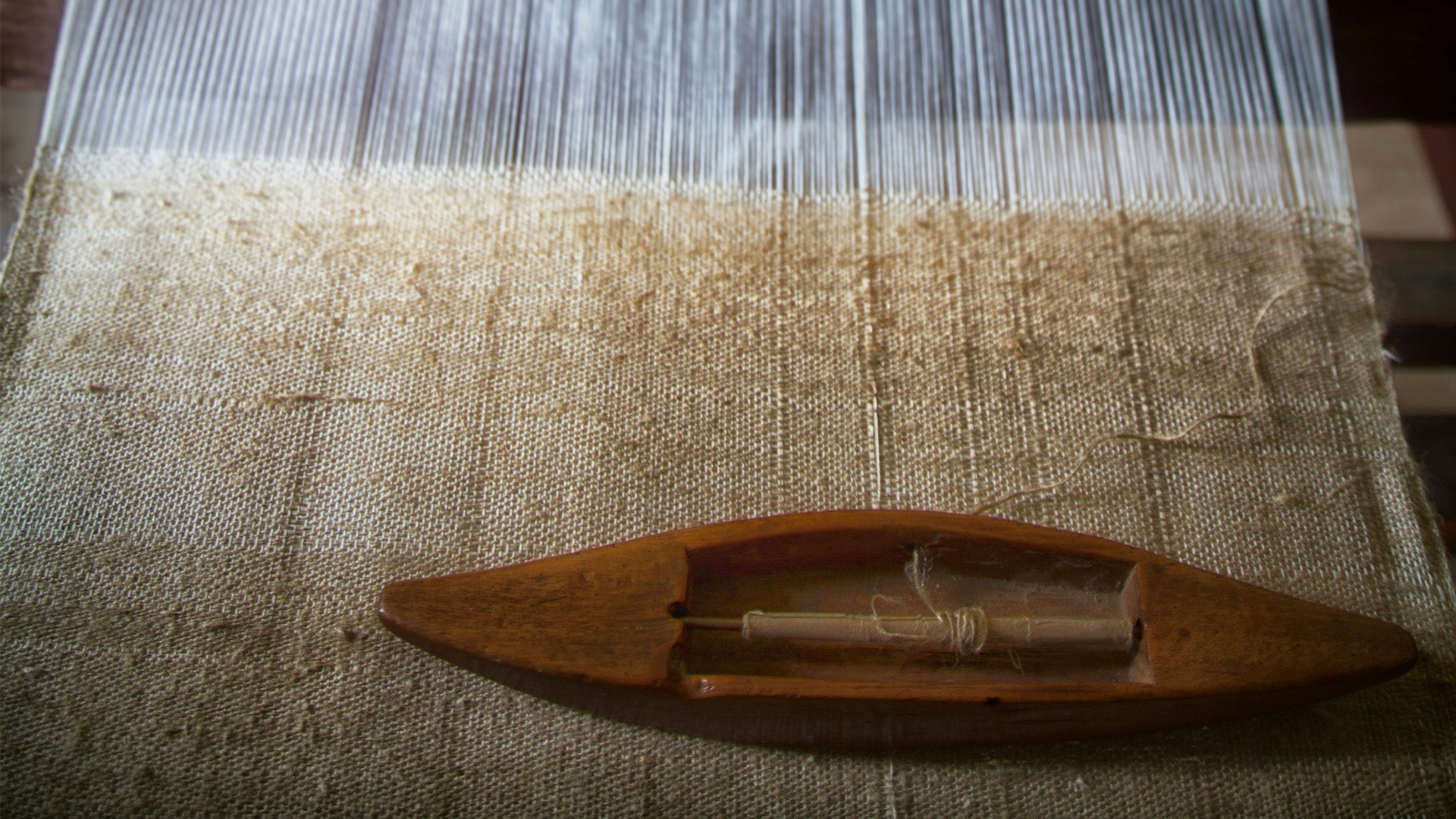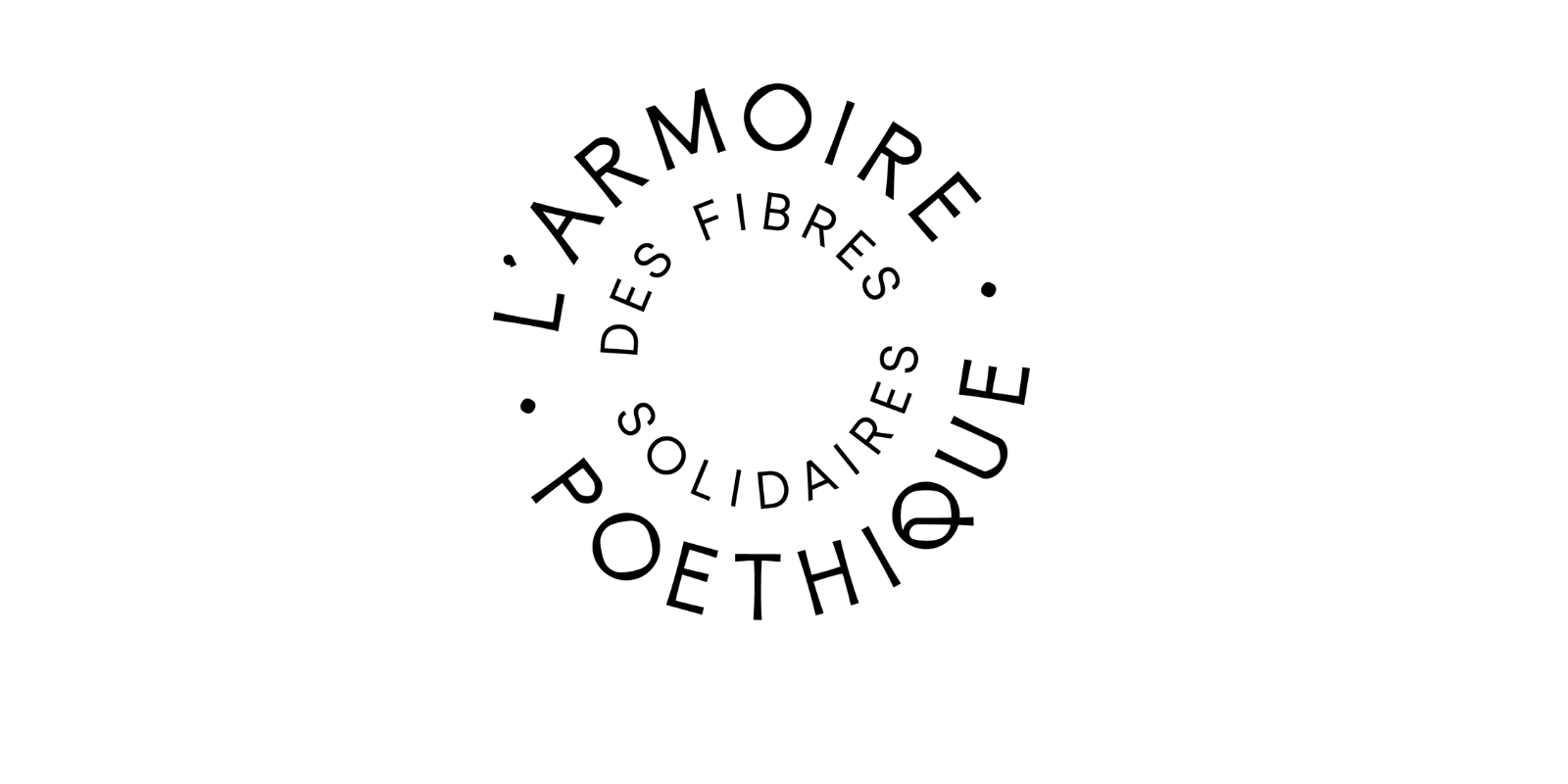LABELS
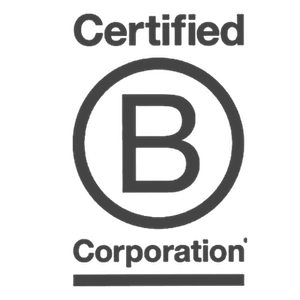
BCORP
The BCorp community was founded in 2006 in the United States with the intention of “changing capitalism” and rethinking the notion of success in business. The initiative is based on the recognition that today’s challenges cannot be solved by governments and non-profit organizations alone. BCorp certification (short for “Benefit Corporation”) is a certification awarded to commercial companies that meet societal and environmental requirements, governance, and public transparency. It ensures that a company has a beneficial impact on the world while being profitable. The stated objectives of the BCorp community are to reduce inequality, alleviate poverty, ensure a healthier environment, make communities more resilient, and create better quality jobs.
BCorp certification is awarded by B Lab, a non-profit organization operating in the United States, Europe, South America, Canada, Australia, and New Zealand. To obtain and maintain certification, a company must achieve a minimum score of 80 out of 200 points on the international standard, which is available online. Once the social and environmental impact assessment is completed, it submits it to B Lab for verification. In addition to verification, the company can amend its legal status. Currently, more than 2,600 companies are BCorp certified in over 60 countries and 150 different sectors.
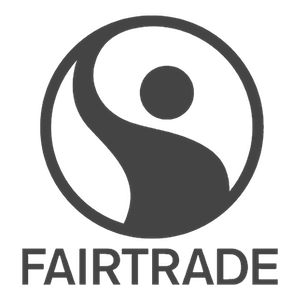
FAIRTRADE
The Fairtrade label helps improve the living conditions of producers, workers, and their communities. Fairtrade-certified products are subject to social, environmental, and economic criteria. The product is fully traceable from the field to the store shelf. This certification exists for food products, but also for textile products such as cotton. Its presence indicates that 100% of the cotton in this product is fair trade. Fairtrade provides support to producers and ensures product price stability. It also promotes advocacy and is recognized worldwide.
DISCOVER THE FAIRTRADE LABEL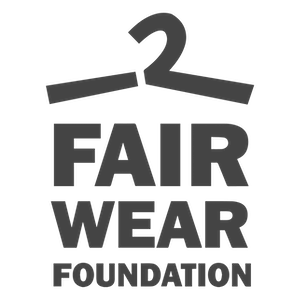
FAIR WEAR FOUNDATION
The Fair Wear Foundation was established in 1999. The Fair Wear Foundation label certifies fair and equitable working conditions for textile workers in member companies. It is a multi-stakeholder organization that works to monitor and improve working conditions in the textile industry. The Fair Wear Foundation relies on NGOs, workers' unions, and brand representatives to make decisions and choose rules collectively. It is an independent foundation that works in collaboration with member companies to improve and ensure decent working conditions. This collaboration is embodied in the Fair Wear Foundation's Labor Code, based on the 8 standard practices supported and inspired by the conventions of the ILO (International Labor Organization) and the International Declaration of Human Rights.
DISCOVER THE FAIR WEAR FOUNDATION LABEL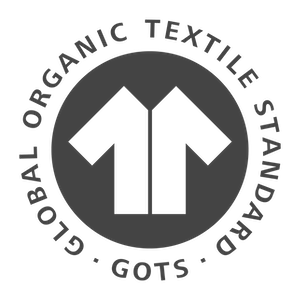
GOTS
GOTS is a global standard for organic fibers that includes ecological and social criteria and relies on independent certification of the entire textile supply chain. The standard covers the processing, manufacturing, packaging, labeling, trade, and distribution of all textiles made from at least 70% certified organic natural fibers . It currently has the most stringent specifications:
- Presence of certified organic fibers between 70% and 95%
- Ban on chemicals toxic to the environment and health
- Ban on GMOs
- Waste minimization
- Wastewater treatment
- Recyclable packaging
- Compliance with social criteria set by the ILO (International Labour Organization)
- Technical quality of the finished product
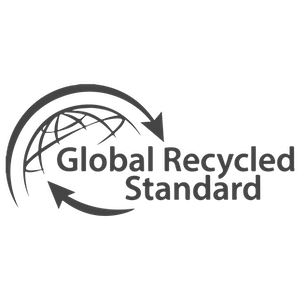
GRS
The Global Recycle Standard was developed by Control Union Certifications in 2008 and became the property of Textile Exchange on January 1, 2011. GRS is an international, voluntary standard that establishes criteria for third-party certification of recycled content, chain of custody, social and environmental practices, and chemical composition restrictions.
The GRS standard is designed to meet the needs of companies that wish to verify the recycled content of their products (finished and intermediate) and control responsible social, environmental and chemical practices in their production.
The GRS standard aims to define requirements that ensure the accuracy of content declarations and the quality of working conditions, and to minimize environmental and chemical impacts. It applies to companies engaged in ginning, spinning, weaving, knitting, dyeing, printing, and sewing in more than 50 countries.
DISCOVER THE GRS LABEL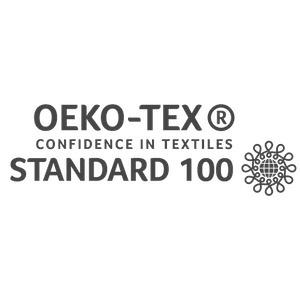
OEKOTEX STANDARD 100
The Oeko-Tex Standard 100 label is a quality label, also called “Confiance Textile” in France. It guarantees the safety of textiles or products used during the production process, for humans (workers or consumers) and the environment. It ensures the production of materials or finished products free from toxic substances. This label benefits consumers, who can check whether the product certification is still valid thanks to a certification number. There are four product classes. The more the product is in contact with the skin, the more stringent the anti-allergy standards are.
- Class I: the strictest, products for children under 3 years old
- Class II: Items in direct contact with the skin, such as underwear, bed linen and T-shirts
- Class III: items that are not in direct contact with the skin such as coats, jackets, etc.
- Class IV: equipment materials, such as curtains, tablecloths or upholstered furniture coverings
A member of the International OEKO-TEX® Association since 1994, the IFTH (French Institute of Textiles and Clothing - Lyon laboratory) is the only organization authorized in France to process these certification applications. The IFTH carries out the tests according to the specifications defined by the International OEKO-TEX® Association. The Oeko-Tex certificate is issued for a period of one year.
DISCOVER THE OEKOTEX STANDARD 1000 LABEL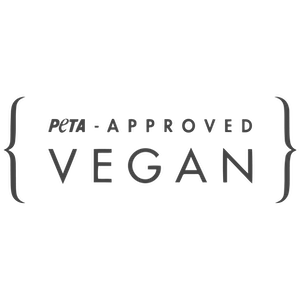
PETA
People for the Ethical Treatment of Animals (PETA) is a non-profit organization founded in 1980 to advocate for animal rights. PETA certification certifies that certified products do not contain any animal materials. This certification is declarative, meaning that companies wishing to be certified by PETA must complete a questionnaire and sign a “statement of assurance” attesting that the products do not contain any animal materials, such as fur, leather, silk, down, or wool. Some products of a brand may be labeled alongside other, unlabeled products.
DISCOVER THE PETA LABEL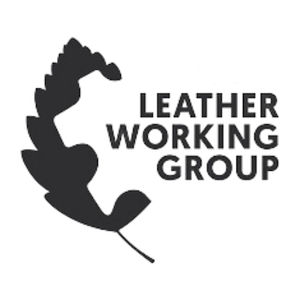
LEATHER WORKING GROUP
The Leather Working Group (LWG) is an international organization that aims to encourage sustainability in the leather industry, among other things through the development of a standard that takes into account environmental and social performance criteria for leather.
To become a member of the LWG, manufacturers must undergo an assessment of their facilities to ensure they meet the established standard. This standard covers several parameters such as chemical management, chromium use, traceability, water and energy use, and waste management.
DISCOVER THE LEATHER WORKING GROUP LABEL




